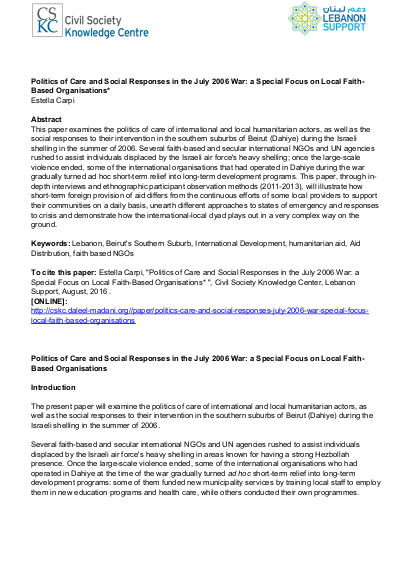
This paper examines the politics of care of international and local humanitarian actors, as well as the social responses to their intervention in the southern suburbs of Beirut (Dahiye) during the Israeli shelling in the summer of 2006. Several faith-based and secular international NGOs and UN agencies rushed to assist individuals displaced by the Israeli air force's heavy shelling; once the large-scale violence ended, some of the international organisations that had operated in Dahiye during the war gradually turned ad hoc short-term relief into long-term development programs. This paper, through in-depth interviews and ethnographic participant observation methods (2011-2013), will illustrate how short-term foreign provision of aid differs from the continuous efforts of some local providers to support their communities on a daily basis, unearth different approaches to states of emergency and responses to crisis and demonstrate how the international-local dyad plays out in a very complex way on the ground.